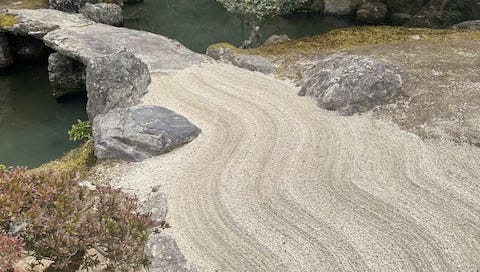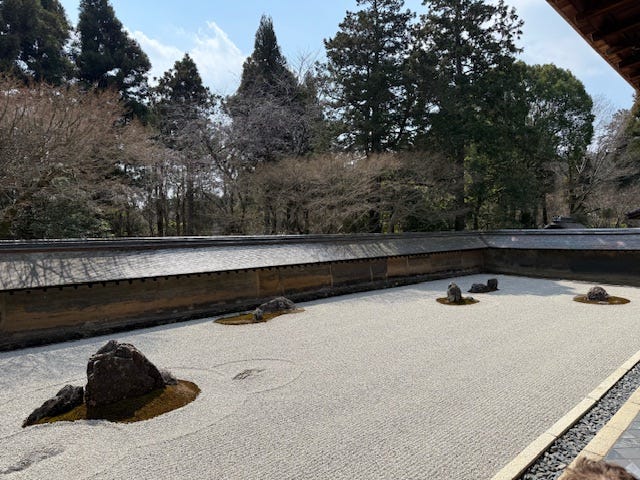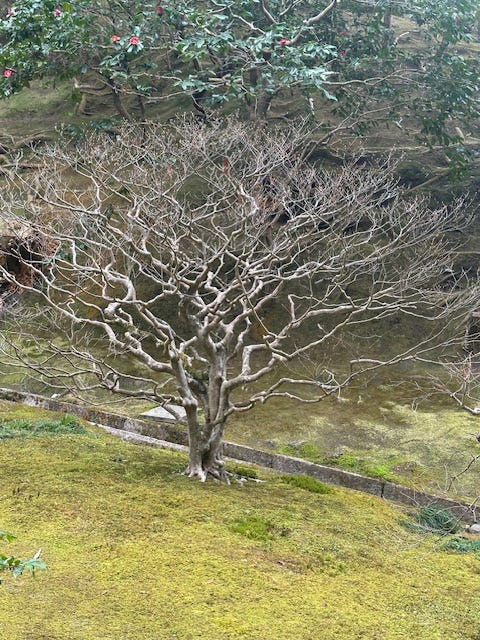A friend and I have been discussing the concept of the void in Eastern philosophy and spirituality recently, which is a funny thing to do because it sort of defies language by its very design. That’s the point, really. Eastern spirituality is to be experienced, and whether one gets around to describing it or explaining it is entirely secondary. Whatever language we use, it ought to benefit helping someone else explore their own experience of it.
The void is a place of emptiness, but while in Western culture we see that only in negative terms, it is not this way in Zen Buddhism, or Eastern philosophy in general. It is an emptiness that provides the kind of space that evokes becoming, creativity, possibility. It is a moment of clarity where you realize how absolutely small and insignificant you are, and yet how unique, precious, and beautiful this world is, which includes even little you. It is the feeling of being a mere drop in the ocean and yet also being the ocean itself. It is both transformative and humbling.
In Zen gardens, there is a purposeful sparseness that speaks to this. There is no incentive to stuff every last corner with shrubbery or flowers or ground cover. Rather, the Zen gardener asks, “Why have two cherry blossom trees when you could have one?” Rather than feeling sparse, though, it feels remarkably spacious. If you have ever walked through one, you may know exactly what I mean. It is the feeling of having everything you need and nothing you don’t. Like a meal that leaves you perfectly satisfied and not a bit too full.
It begins to make sense why the void is described as spiritual freedom.
At Ryoanji Temple in Kyoto, there is a rock meditation garden with fifteen stones. But wherever you sit, you can never see all fifteen. This is the mystery, the “sermon in stone,” as the monastery calls it. The universe is vast and not entirely knowable. We see what we see, and we receive and release the rest into the void, into that space of deep mystery.
I suppose I have been thinking about the void because of my own inner world these days, which feels more akin to a Zen garden than its more standard overgrown, wild landscape vibe. And while I like little more than spending time in a Zen garden, being like one feels far less comfortable. I am an over-producer, and I say that as a confession and not a boast. I have this terrible habit of pouring my whole self into a whole lot of things, all at the same time. You may be shocked to know this sometimes catches up with me, and I discover to my great dismay that I am but one solitary human being.
Unlike the Zen gardener, I never ask whether one tree might do when I could have two. I plant seventeen of them and then wonder why I feel tired.
Friends, I am coming out of a season of planting seventeen trees. I am so delighted with them, and I do not regret them in the slightest. They are beautiful little saplings and there is nothing I want more than to see them grow and thrive. I felt called to those trees, and I hope I have done well by them. And also… I feel tired. I am tired. The fullness of the void which produces these bursts of creative delight has now traveled its course toward that place in the void that is true emptiness. I am learning to attend to it with the kind of stillness and inaction that it seems to require. I confess to lacking patience at the ways it seems to require far longer periods than I feel willing to give. I am reminded of times when I came to my meditation teacher with whatever problem I was having, wanting her to give me a solution or a reprieve, only to hear her say, “Meditate more. Meditate longer.” In other words: don’t do something, sit there.
Sit in the garden and count the stones. Behold the mystery.
I am empty.
And I am listening.






